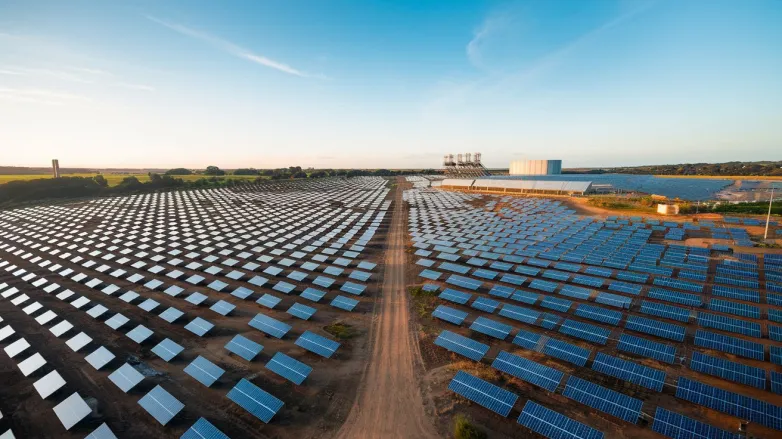Georgia Power Expands with 1,068 MW Solar Projects
- Georgia Power advances solar energy with 1,068 MW PPAs, boosting Georgia's industrial power needs and inviting bids for 2,000 MW more by 2025.

Georgia Power has secured state approval for five utility-scale solar power purchase agreements (PPAs) totaling 1,068 megawatts under its CARES 2023 program. These projects, to be developed by third-party entities, will be located in Mitchell, Coffee, Wilkinson, Jefferson, and Laurens counties. The initiative aims to provide fixed-price daytime power for commercial and industrial clients, with the PPAs expected to be operational by 2028.
The utility has also issued a CARES 2025 request for proposals, targeting up to 2,000 megawatts of solar or solar-plus-storage capacity, with bids due in August. This expansion is crucial for meeting the growing energy demands in Georgia's industrial and logistics sectors. The CARES model allows corporate customers to subscribe to renewable energy, while Georgia Power manages system planning. Developers must now focus on interconnection upgrades, securing equipment, and aligning community-benefit plans to ensure project success.
How will Georgia Power's CARES 2023 and 2025 programs impact the state's energy landscape?
- Increased Renewable Energy Capacity: The CARES 2023 and 2025 programs will significantly increase Georgia's renewable energy capacity, contributing to a cleaner energy mix and reducing reliance on fossil fuels.
- Economic Growth and Job Creation: The development of new solar projects will likely stimulate local economies, creating jobs in construction, maintenance, and operations within the renewable energy sector.
- Energy Cost Stability: By providing fixed-price daytime power, these programs will offer cost stability for commercial and industrial clients, potentially leading to more predictable energy expenses.
- Enhanced Energy Security: The addition of solar and solar-plus-storage capacity will enhance energy security by diversifying the energy supply and reducing vulnerability to fuel price fluctuations.
- Support for Corporate Sustainability Goals: The CARES model allows corporate customers to meet sustainability targets by subscribing to renewable energy, aligning with broader corporate social responsibility initiatives.
- Infrastructure and Grid Modernization: The need for interconnection upgrades and system planning will drive investments in grid infrastructure, improving overall grid reliability and efficiency.
- Community Benefits: Developers are encouraged to align projects with community-benefit plans, potentially leading to local investments in education, infrastructure, and other community services.
- Environmental Impact: The shift towards solar energy will contribute to reduced greenhouse gas emissions, supporting state and national climate goals.
- Increased Competition and Innovation: The request for proposals under CARES 2025 may encourage competition among developers, fostering innovation and potentially leading to more efficient and cost-effective solar technologies.
Also read

